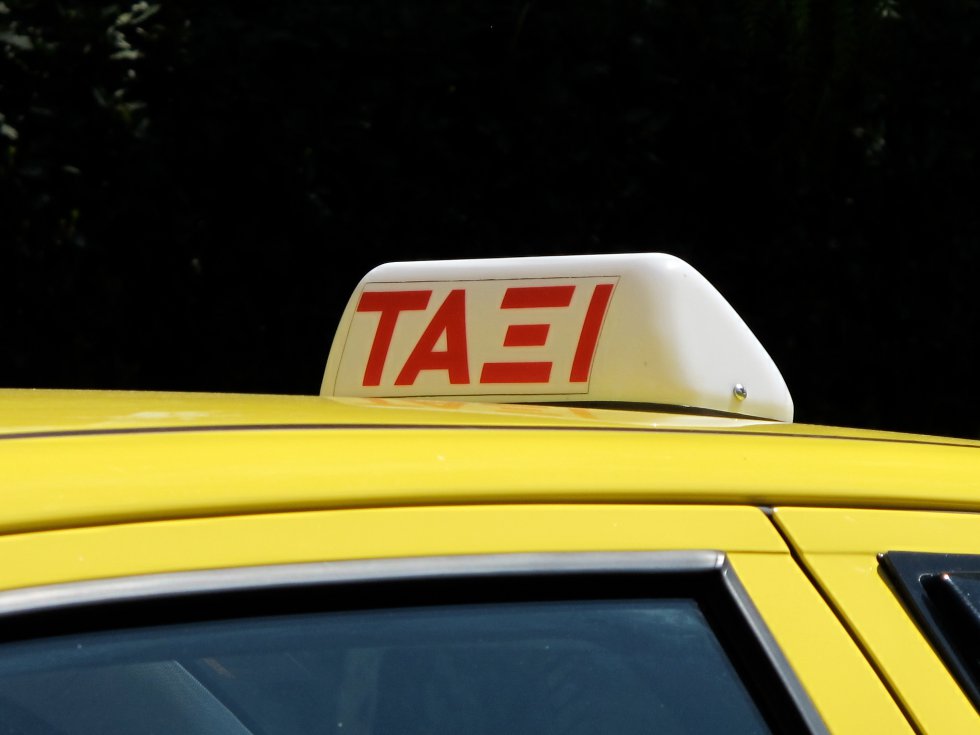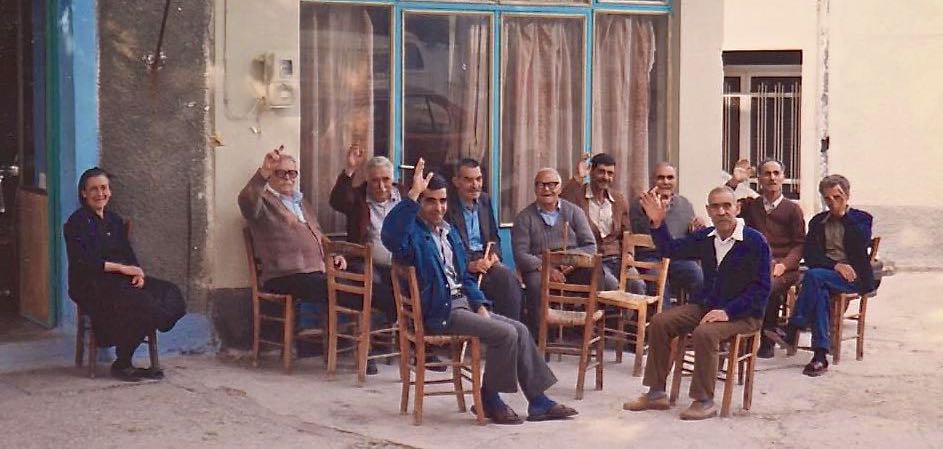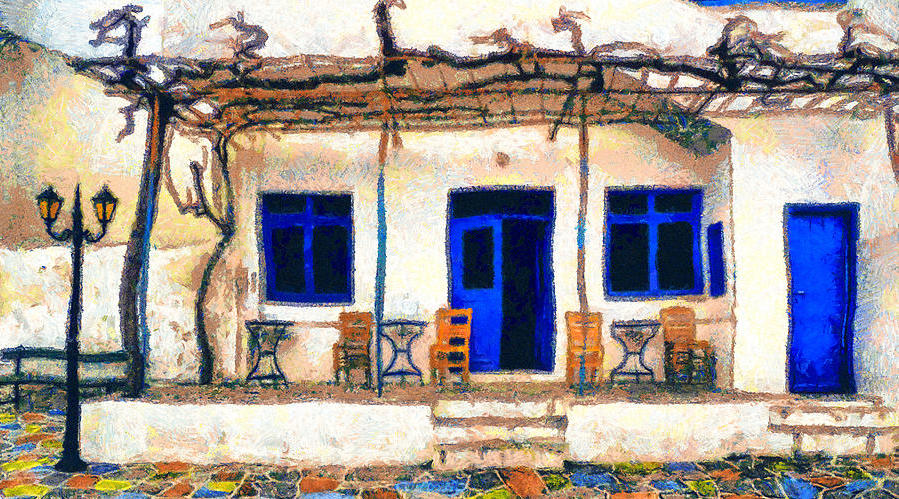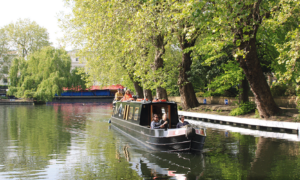Greece is certainly a land of contrasts; it has everything, azure blue sea, mixed with turquoise, mountains, forests, lakes, and of course, the islands. The weather is usually good, even in winter.
The microclimate of Athens is wonderful, even when the rest of the country is covered in snow, there is rarely snow on the city streets.
The mountains which surround the city are often covered in snow, so the backdrop is very beautiful, and you don’t have to walk on the treacherous stuff.
In summer the heat can be oppressive in the city centre, but just a short trip to Glyfada takes you away from the heat and to the foot of Mount Ymettos. There’s usually a breeze which is very welcome. Then, of course, there’s the cooling sea inviting you in for a dip.
This is the good side of living in Greece, but like everything else, it has its downside too.
The country might look like a paradise, but the serpent sometimes lurks just below the surface.
Here are some tips I learned the hard way just after moving to Greece many years ago:

Let’s start with Greek taxis
In Athens taxis are yellow but in provinces other than Attika, other they are different colours: silver in Corinth, red in Sparti and white in Tripolis. If you are travelling around Greece, look for the sign that says ‘taxi’ on the roof of the car (above).
Greek taxis and their drivers have long been notorious, and not that much has really changed since the 1980s when a taxi driver tried to rip me off. The whole scenario was ridiculous, and the driver must have been completely stupid.
I had landed at the old international airport at Ellenikos, Athens, which is now in the process of redevelopment. However, the work is slow because ancient archaeological discoveries have been made. That means that the work has come to a halt while excavations take place.
This is common in Athens as it has such a rich history and if any new building is erected, there are usually complications because of the archaeological finds discovered when excavation of the site begins. In metro stations across the capital, archaeological finds that were discovered during the building of the metro station are displayed.
The trip between the domestic airport and the international one was only a matter of a few kilometres, so imagine my consternation when the taxi driver asked for the equivalent of a hundred pounds for the trip. He pulled up the flap, which had previously hidden the meter, so that I could see the price displayed.
I could see a couple of tourist police outside the airport and stalled. I asked the driver to get my bags out of the taxi while I looked in my bag for money. He put the bags on the pavement and I helped my young daughter out of the taxi. Then I shouted for the police. They ran to me and the taxi driver left immediately, but not before the police had taken his registration number.
The police then helped me take my daughter and luggage to the check-in desk for the plane to Paros, which was the island where we were headed.
These days, taxi drivers aren’t so greedy, but it’s always worth keeping an eye on the taxi meters.I’m reliably informed there are tricks to make them race. There was competition from Uber too, so taxi drivers want to maximize their earnings.
At the moment, Uber’s operations have ceased in Athens, at least temporarily, following a new law designed to protect taxi drivers.
Taxi driving is not as lucrative as it once was.

Greeks’ changing attitudes to pets
When I first came to Greece way back in the 1970s Greeks were not animal lovers. I once rescued a cat from a gang of small boys who were torturing it on the roadside. No one did anything to stop them, although many people had passed by.
Then there was the time I rescued a litter of newly-born kittens from a rubbish bag which had been thrown in a bin. I had thought it was a baby crying, but no, there were seven kittens mewling pitifully.
Now, however, Greeks are proud pet owners. On the whole, they take very good care of their dogs and cats. There are also animal rescue centres and programmes to neuter strays and vaccinate the animals.
There are also examples of Greeks taking in stray dogs and cats and giving the love and affection they need. A friend of mine took in a badly abused dog a few years ago, and now the dog is almost “normal” although she is scared of many things.
The same friend rescued a dog from outside a taverna in Corinth. We checked to make sure that no one wanted her and took her back to Athens with us. Now she has a happy life with another owner. (My friend couldn’t keep her because the other dog was upset and jealous of her. Ah, life’s complications ….)
Because of the financial crisis, new measures are being taken to claw money from everyone. The latest way is to have owners pay to have licenses for their pets, which means cats and dogs. Dog licenses are a thing of the past in the United Kingdom, but the Greek government has embraced this outdated idea. After all the cash-strapped state needs all the money it can get.
Unfortunately, Greeks are paying so many taxes that this new law may well backfire. Another 100 euros per year for a pet license may not seem very much, but money is tight for many here.
However, there is a new law which requires owners of animals to be responsible for their health and welfare, which is good. But there might be a lot more strays on the streets because of the licensing fees just when the problem seemed to be under control.
 Chill over a coffee … but use your words!
Chill over a coffee … but use your words!
When it all gets too much to bear the only thing to do is go to a café of any description for a coffee.
There are the traditional kafenions, generally frequented by elderly men, and modern café bars popular with the younger generation.
Greeks can spend hours sipping (or not) a small Greek coffee. You can sit for hours with an empty cup unless you are in a tourist area.
The thing is though, that you have to be able to order a coffee if your waiter doesn’t speak English. If you are in a small village in the mountains, you may not find an English speaker to help.
So how do you order a coffee in Greek? This really should be one of the first things you learn.
A cappuccino is the same in all languages, but the problem comes when you are faced with choices regarding sweetness. The Greek for sugar is zachari (zaχapη), but that word isn’t really necessary unless you want packets of the stuff, which you might do if you order an espresso or double (διπλo pronounced ‘thiplo’) espresso.
It’s fairly easy to learn numbers in Greek, but you can always resort to using your fingers.
If you want a cappuccino you may want cinnamon (kaνελa), or of course you may not want it, in which case you need to learn the Greek for ‘no’ which is oxi (‘yes’ is nai). However, the correct way to say no sugar, milk (γaλa) or cinnamon is χoris (pronounced choris), meaning ‘without’ followed by the word for whatever it is you don’t want.
With Greek coffee there are easier ways to specify the amount of sugar you want. If you don’t want any sugar, you ask for a café skετo, but if you want a normal amount of sugar, you ask for a café μετϱιo, pronounced metrio (medium), or for those with a sweet tooth, it’s a café γλυκos pronounced glykos.
In summer, Greeks are fond of café frappé, or iced coffee. However, this is usually just Nescafé of the old-fashioned sort, which Greeks know as klaσiko (classico). If you try it and like it, you can buy a small electric machine that fits into a tall glass, and then you can make your own. Sometimes there are offers and the machine comes free with a couple of tins of coffee.
All coffees can be ordered cold. These are called café freddo.
So now you are well-equipped to order coffees in Greek!
Enjoy and sit in the open and chill with your coffee.
 About the author:
About the author:
Lynne Evans is originally from Wales but is an inveterate traveller. She is passionate about writing and feels compelled to write something every day.
Lynne has visited many countries in Europe and South Asia. Working as a freelance writer gives her opportunities to travel.
She’s currently living in her favourite country, Greece, in Athens. In the past she was always leaving Greece and then returning. This time she wants to stay, despite the economic situation.
More from Lynne:
Dispatches Detours: Lynne Evans is your guide for where to go, eat and stay in Peloponnese
Lynne Evans: The unvarnished truth about living in Greece














